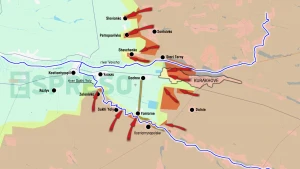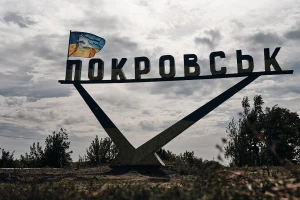
What do we call what's happening in Kursk region?
A key marker of sovereignty is the power to name events and realities. Not merely borrowing names but creating your own, and getting others to use them
On August 6, Ukrainian forces entered Russia's Kursk region. Since then, they’ve taken control of dozens of settlements, including Sudzha, a district center with about five thousand residents. Over one hundred thousand people have been evacuated from the region.
Khurshudyan’s article lays out the entire operation, which includes expanding the war into Russian territory. We’re calling this an "operation" or an "offensive." After all, a country has the right to self-defense against an aggressor, even if that means military actions near the enemy’s borders.
Meanwhile, the Russian side avoids the term "invasion." The Russian Ministry of Defense speaks of an "invasion attempt." Putin uses phrases like "large-scale provocation" and "the situation developing in the Kursk region." The Russian Central Bank opts for the vague "events that have taken place." Putin doesn’t want to acknowledge the gravity of the situation. If, for the first time since World War II, Russian territory isn’t under Russian control, something is clearly wrong. Hence the euphemisms like "the situation developing" or "the events that are happening."
Naming or not naming events reflects control over the narrative.
After Hamas attacked Israel on October 7, 2023, the BBC refused to use the word "terrorists," supposedly to avoid labeling one side of the conflict as the "bad guys."
In the end, history textbooks will give the events in the Kursk region their name. What words will Ukrainian textbooks use?
How should we describe what’s happening?
It's clear that, for now at least, the Ukrainian government isn’t aiming to annex the Kursk region. At some point, though maybe not soon, control of these areas will likely be handed back to Russia’s next government — or the current one — in exchange for something.
The Ukrainian military’s operation in the Kursk region has exposed the Kremlin’s inability to protect and care for its citizens. Now, Russia is bombing its own territories. Soon enough, they’ll probably be "bombing Voronezh."
We can't realistically talk about the Kursk region gaining independence either (however, no one initially expected Luhansk and Donetsk to become so-called "people's republics," but achieving that would require massive administrative resources, which Ukraine lacks.) Plus, there are no oppressed peoples in the Kursk region in need of protection by the Ukrainian parliament.
By process of elimination, we can say that the Ukrainian Armed Forces are enabling the forced re-federalization of the Kursk region. In this process, the region’s population and leadership reject the war against Ukraine and demand the withdrawal of all Russian troops from sovereign Ukrainian territory.
This is how the Kursk region asserts its subjectivity within the Russian Federation, as it is still a full-fledged subject of Russia, represented by its governor, senator, and legislative assembly.
The concept of re-federalization is backed by a European Parliament resolution.
According to this resolution, the Ukrainian Armed Forces, in compliance with the European Parliament’s directives, are carrying out the de-imperialization, decolonization, and re-federalization of the Kursk region within the Russian Federation.
Thus, I propose calling these events the re-federalization of the Kursk region.
About the author. Dmytro Zolotukhin, former Deputy Minister of Information Policy of Ukraine, expert on information warfare and competitive intelligence
The editors do not always share the opinions expressed by the blog authors.
- News













































